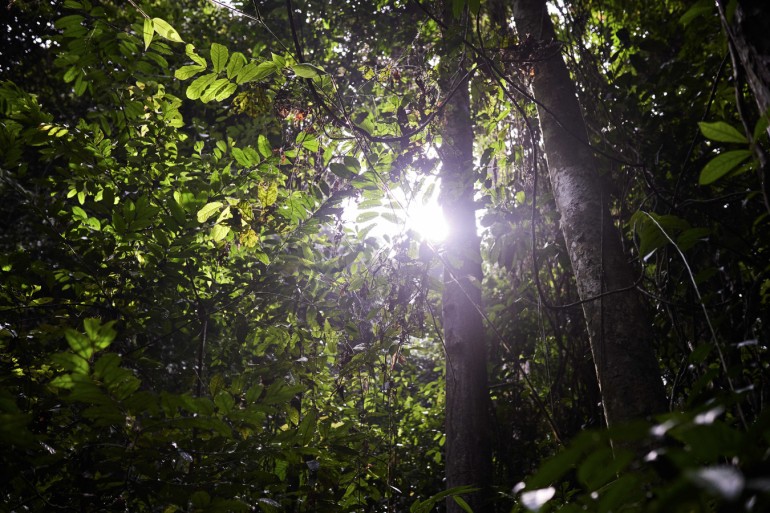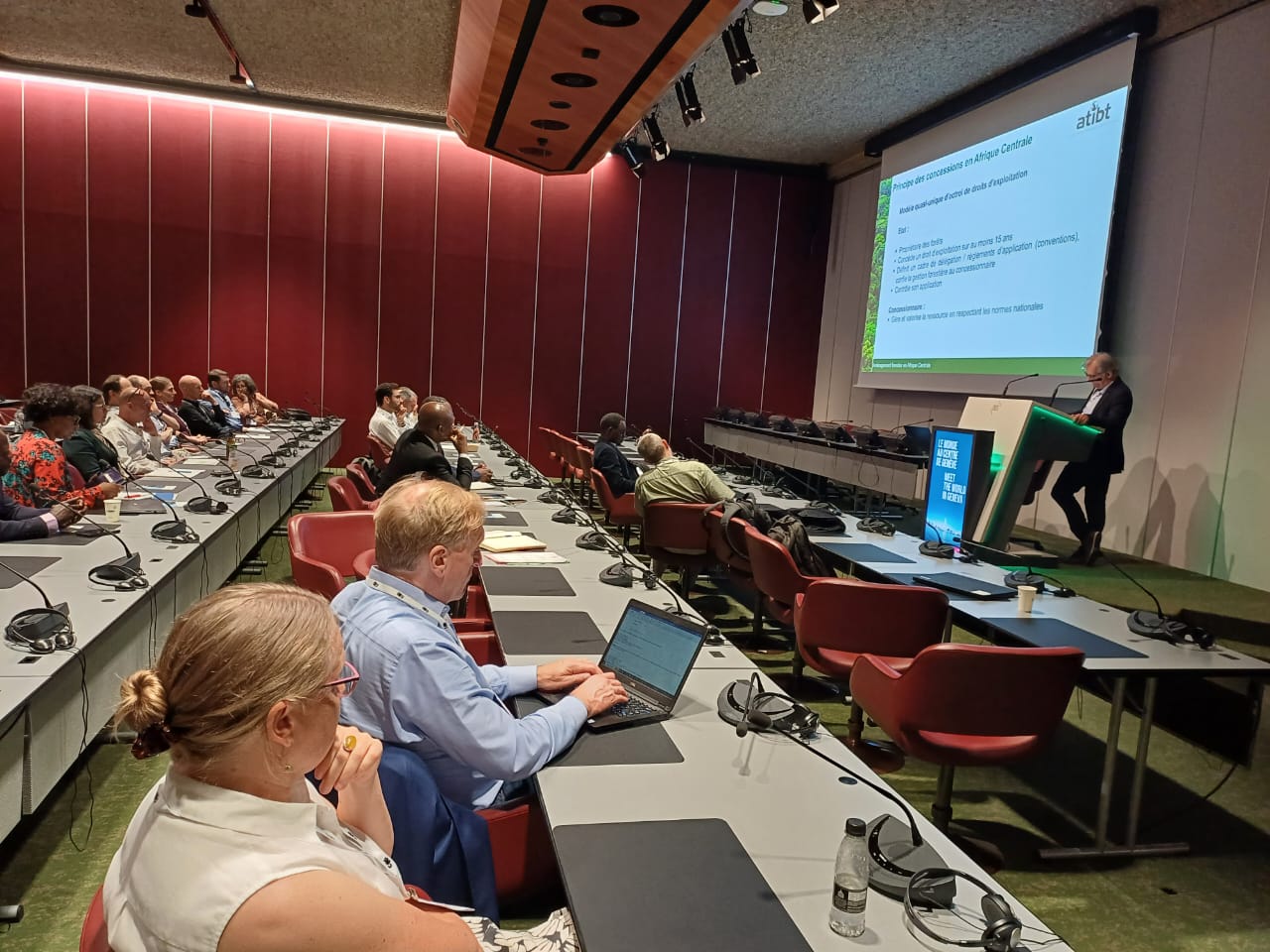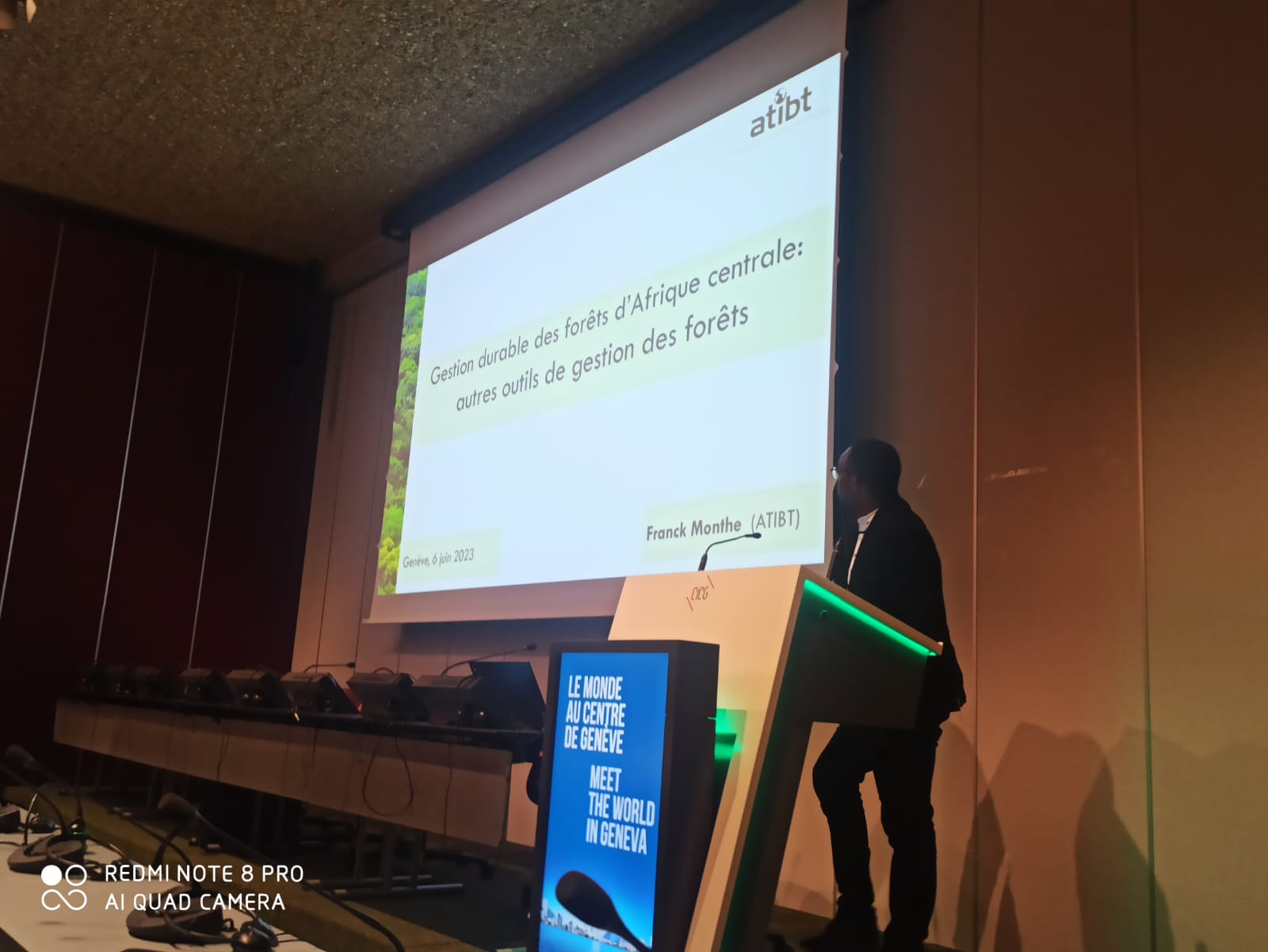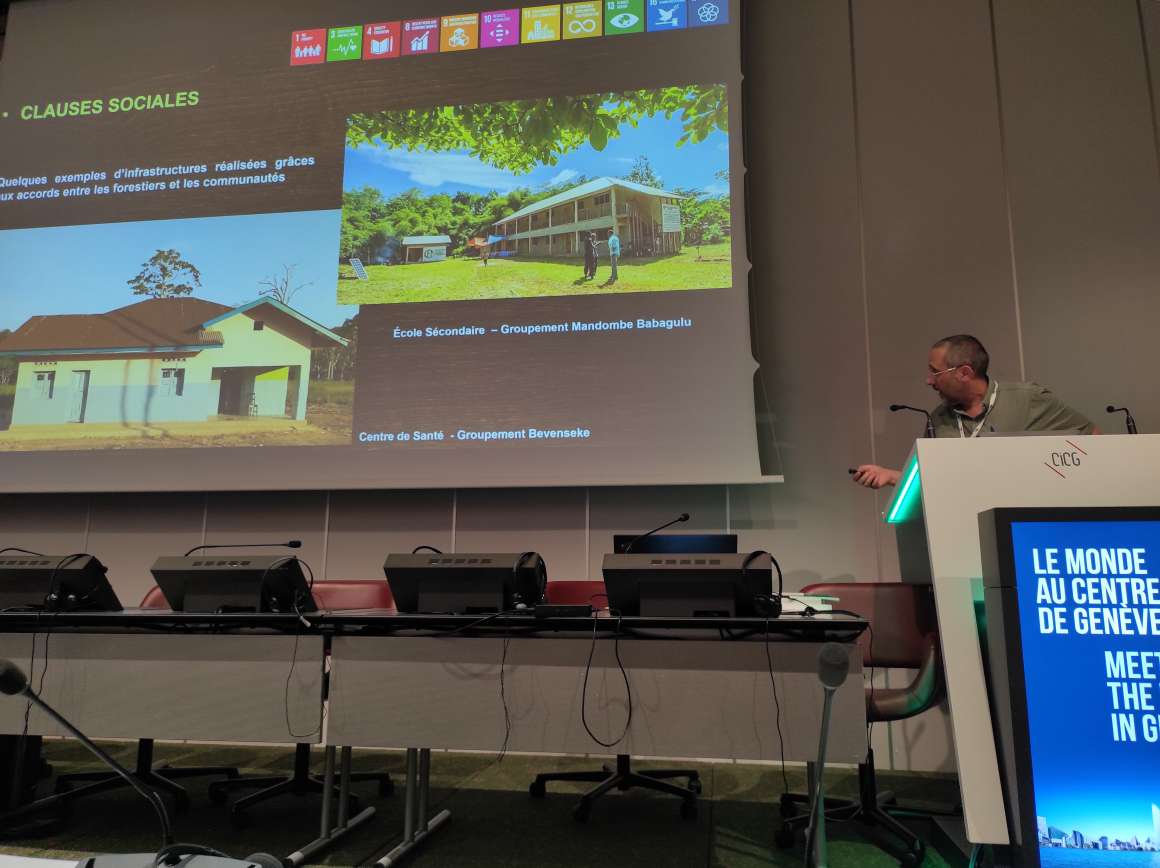

16.06.2023
This side-event was held on 6 June in Geneva, to provide an opportunity for more in-depth discussions with partners from the private sector, as well as with certain government representatives.

Over the years, there has been a growing increase in the number of tropical species listed in Appendix II of CITES. Although this listing does not mean that these species cannot be traded, it does de facto restrict their exports. Many European players in the timber market are influenced by this listing and are turning away from these species. In addition, this Annex II classification introduces new requirements for producer states, notably the production of Non-Detriment Finding Reports ("NDFRs") and the establishment and monitoring of quotas, which can sometimes be difficult to meet due to a lack of human resources. It is therefore essential that these decisions are based on sound ecological and scientific data, and take account of the socio-economic context.
The ATIBT took advantage of this session of the Plants Committee to co-organise, in collaboration with a number of Central African countries, a side-event on the sustainable management of Central African forests. The event was moderated by Cameroon's Director of Forests, Mr Anicet Ngomin, and included the participation of the head of the Democratic Republic of Congo's delegation to the Plants Committee meeting, Professor Augustin Ngumbi. The aim of the event was to present forest management tools in Central Africa and the role of the industrial forestry sector in the region. It was structured around three presentations:
 Nicolas Bayol - ATIBT
Nicolas Bayol - ATIBT
 Franck Monthe - ATIBT
Franck Monthe - ATIBT
 Raphael Barbiche - ATIBT
Raphael Barbiche - ATIBT
Following the presentations, a question-and-answer session provided an opportunity to clarify the methodology of the conservation status review study, as well as the ecology and management of Central Africa's tropical forests.
All these presentations are available on request from the following address: franck.monthe@atibt.org